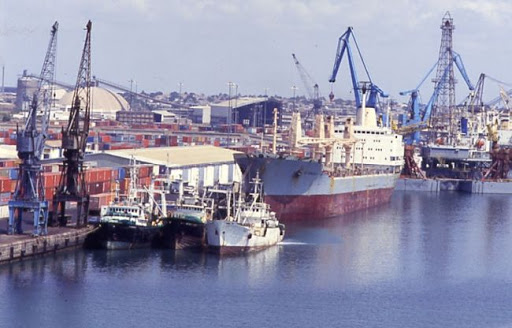Developing countries including Ghana lose $1.6 trillion in potential trade misinvoicing – GFI
 Illicit financial flows occur in several ways and forms including trade misinvoicing, and it appears developing countries continue to lose much needed revenue from that. A new report by the Global Financial Integrity (GFI) released recently shows that some 134 developing countries, including Ghana, together lost an estimated $1.6 trillion in potential trade misinvoicing, and $835 billion of the amount lost, occurred between developing countries and 36 advanced economies, in 2018.
Illicit financial flows occur in several ways and forms including trade misinvoicing, and it appears developing countries continue to lose much needed revenue from that. A new report by the Global Financial Integrity (GFI) released recently shows that some 134 developing countries, including Ghana, together lost an estimated $1.6 trillion in potential trade misinvoicing, and $835 billion of the amount lost, occurred between developing countries and 36 advanced economies, in 2018.
According to the report titled, Trade-Related Illicit Financial Flows in 134 Developing Countries 2009-2018, trade misinvoicing is a persistent problem across developing nations, resulting in potentially massive revenue losses and facilitating illicit financial flows across international borders.
In press release copied to Ghana Business News, the GFI indicates that trade misinvoicing occurs when importers and exporters deliberately falsify the declared value of goods on invoices submitted to customs authorities.
“This allows traders to illegally move money across international borders, evade tax and/or customs duties, launder the proceeds of criminal activity, circumvent currency controls, and hide profits in offshore bank accounts,” it said.
The report notes that value gaps, or mismatches in international trade transactions, indicate that developing countries are not collecting the correct amount of trade-related taxes and duties that are owed, leading to potentially massive amounts of revenue losses. While these value gaps are only estimates of misinvoicing, they indicate the scale of the problem.
The GFI did an analysis of the ten countries with the largest average value gaps as a per cent of their total trade with all trading partners over the ten-year period of 2009-2018. It found the following, The Gambia registered as having the largest, with an average value gap at 51.9 per cent. It was followed by Sierra Leone, with an average value gap of 35.4 per cent over the period; Togo (29.2 per cent); Ghana (26.4 per cent); and The Philippines (26.1 per cent). By contrast, China ranked 41st out of the 134 developing countries analyzed, with an average value gap of 21.5 per cent of its trade with all trading partners over the period.
According to the GFI, in order to identify potential trade misinvoicing, it examined official trade data reported to the United Nations to identify value gaps, or mismatches, in the data regarding what any two countries reported about their trade with one another. While there are reasons for some mismatches to regularly show up in the international trade data, GFI believes that the majority of the gaps identified are indicative of trade misinvoicing activity. GFI looked at all bilateral trade data for 134 developing countries, as well as trade between those countries and 36 advanced economies, it added.
To address the problem, the GFI made the following recommendations: It states that at the national level, countries should: Make trade misinvoicing illegal; Strengthen law enforcement capacities of customs authorities; Establish multi-agency teams to address customs fraud, tax evasion and other financial crimes; Implement readily available trade misinvoicing risk assessment tools; Strengthen customs oversight of Free Trade Zones (FTZs); Establish National Trade Facilitation Committees.
Internationally countries should work together to: Expand information-sharing between importing and exporting countries; Explore the use of distributed ledger technology to identify trade misinvoicing.
By Emmanuel K. Dogbevi
Copyright ©2021 by NewsBridge Africa
All rights reserved. This article or any portion thereof may not be reproduced or used in any manner whatsoever without the express written permission of the publisher except for the use of brief quotations in reviews.
